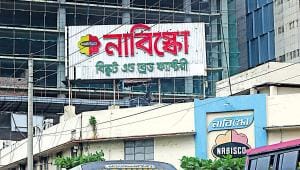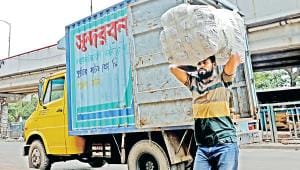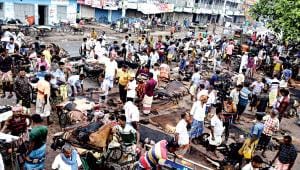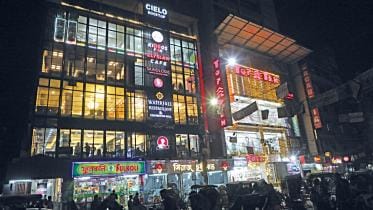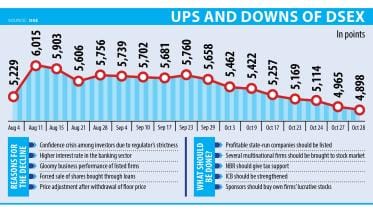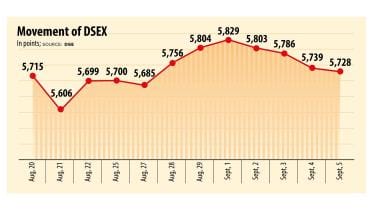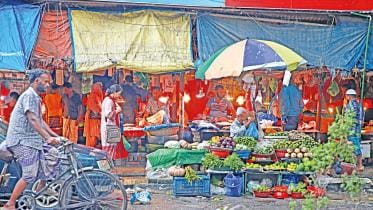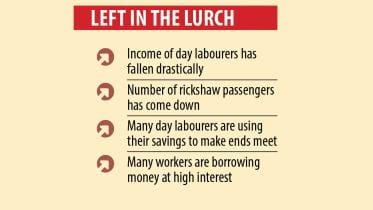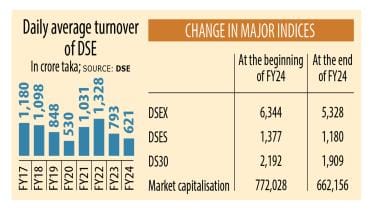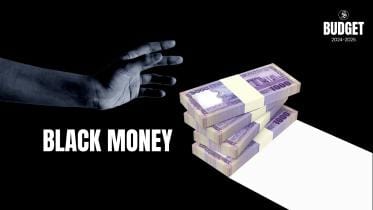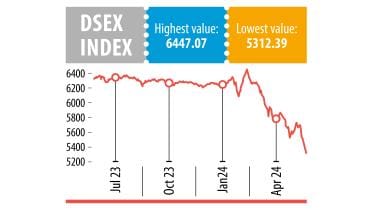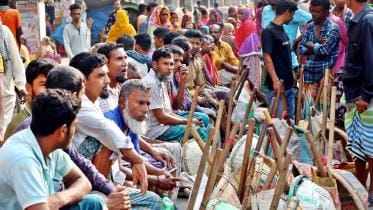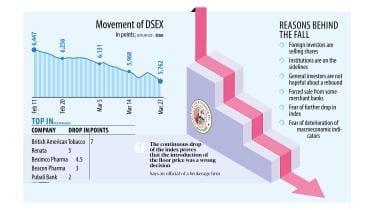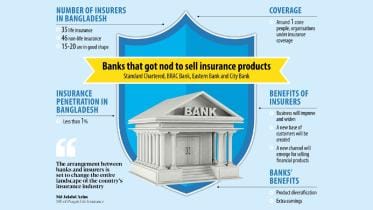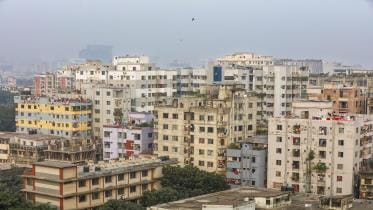The Changing Face of Khilgaon
With its growing population of students, young professionals, and families, Khilgaon has become a center of commerce, education, and entertainment
28 February 2025, 18:00 PM
Bees & bucks: Beekeeping boosts rural incomes
From December to February, mustard fields across Bangladesh become buzzing ecosystems as bees, both wild and domesticated, diligently go from flower to flower in search of their most precious commodity: nectar.
31 January 2025, 18:00 PM
Stocks jump as NBR cuts capital gains tax
Stocks soared yesterday as investors cheered the substantial cut in capital gains tax by the National Board of Revenue (NBR) to encourage big local and foreign investors.
4 November 2024, 18:00 PM
Panic sales send stocks to four-year low
Stocks in Bangladesh plummeted to a four-year low yesterday, just a day after the stock market regulator formed an inquiry committee to investigate the reasons behind the market’s sharp decline.
28 October 2024, 18:00 PM
Key index rises 500 points in a month
The benchmark index of the Dhaka Stock Exchange (DSE), the premier bourse in Bangladesh, rose 500 points in the past month after a change in the political landscape brought on by the ouster of the Awami League government.
6 September 2024, 06:14 AM
How life is like when prices go through the roof
Fatima Khatun, dressed in a washed-out kameez, came to Muslim Bazar in Mirpur 12 to shop with her four-year-old son on August 16.
30 August 2024, 18:00 PM
Informal workers struggling to make ends meet
Day labourers in Dhaka are among those who are suffering the most due to the ongoing unrest along with the curfew imposed by the government to stem the violence.
22 July 2024, 15:48 PM
Informal workers struggling to make ends meet
“I can’t get you to understand how I managed to pay for meals over the past four days,” a dejected labourer, Muzahid Hossain, said yesterday.
21 July 2024, 18:00 PM
Number of DSE mobile app users halves in 4 years
The number of users of the Dhaka Stock Exchange’s (DSE) mobile app has more than halved in the past four financial years, apparently due to a protracted bearish trend in the market.
6 July 2024, 18:00 PM
FY24: A brutal year that gutted stock investors
For stock investors in Bangladesh, the just-concluded fiscal year was the worst in four years, with the benchmark index of Dhaka Stock Exchange losing over 1,000 points.
1 July 2024, 18:00 PM
Amnesty for black money: what are the proposed tax measures?
By re-launching the initiative, the government seeks to increase the flow of money into the economy, although such measures failed to yield any fruitful benefit in the past.
9 June 2024, 13:35 PM
Stocks keep bleeding
The DSEX, the benchmark index of the Dhaka Stock Exchange (DSE), shed 58.7 points, or 1.09 percent, to close at about 5,312 points, its lowest in 39 months.
24 May 2024, 00:45 AM
Heatwave leaves day labourers in the lurch
Despite their willingness to brave the unprecedented temperatures, many day-labourers are still not finding jobs as most employers have put their projects on hold since they are not getting the optimal output from day labourers.
1 May 2024, 01:11 AM
Stocks sink to lowest level in 3 years as investors sell and go away
Bangladesh’s stock market has been going through a bear run for the last two months despite petering out of election-linked uncertainty, signaling that the worries about the macroeconomic challenges are far from over.
28 March 2024, 00:08 AM
Digital Bliss: Cashless spree for Eid
Sales continue to surge for lifestyle products, home appliances, electronics, and groceries in anticipation of Eid-ul-Fitr, the biggest religious festival and the pinnacle of business activity in Bangladesh.
23 March 2024, 18:00 PM
Bancassurance to help insurers break new ground
Bancassurance will open a new horizon for the insurance industry in Bangladesh as the collaborative arrangement will help insurers expand their coverage at low cost, according to industry people.
30 January 2024, 18:30 PM
Increase in house rent puts further burden on tenants
Tenants in Dhaka city face house rent hikes in the middle of an inflation fuelled economy
8 January 2024, 18:00 PM
Villagers grow food for all. But they end up paying more for it
People living in rural Bangladesh have witnessed more erosion in their purchasing power and well-being than the urbanites as the former are paying more for both food and non-food items
15 December 2023, 00:00 AM
How long can fixed-income groups cope with higher inflation?
The cost-of-living crisis has kept stressing out fixed and lower-middle-income groups in Bangladesh as inflation has persisted at elevated levels while their salaries and incomes have seen little upward adjustments.
6 October 2023, 01:00 AM
Tea gardens seeing fresh investment
The jump in consumption of tea, once a preserve of the elite, brought about by the rise in people’s purchasing power over the past decade has presented tea garden owners with a renewed and compelling business case.
15 August 2023, 18:00 PM






